So you’re thinking about going to college?
Have you ever asked yourself what your reasons for going are?
Probably not.
Most young people don’t ask themselves this, but if more people did, they might find some surprising answers to the question. They might find that the four years, the debt, even the classroom setting, isn’t the best path for them. They might find that they can achieve their goals elsewhere.
Now, I’m not categorically against college, but I do believe that more young people should look at higher education within the context of their own lives, not as some foggy abstract norm or expectation that they participate in just because everyone else is doing it – and accumulate debt to do so.
Life is far too short to live passively!
Think. Ask questions. Be an active participant in your education. Determine what makes you come alive, and decide for yourself what you should do.
It’s hard! But it’s a lot better than letting others answer those questions for you.
Is College Right for You?
Deciding whether or not to attend college is one of the biggest decisions you’ll make, which is why it’s so important that you consider all the angles – and all the alternatives.
College can be wildly expensive, especially if you attend an out of state and/or private school. If you’re not in a position to pay for tuition, you could rack up debts that take as long as 20 years to pay off, which may cause you to delay important milestones like purchasing a home, getting married, or having children.
While there are many valid reasons to go to college, a college degree is not a guarantee of success. Unemployment and underemployment are high among college graduates, and it’s not uncommon for workers with only a high school diploma to outearn college graduates.
For most jobs, you don’t actually need a college degree – even if the job description says so. If you have the right skills, experience, and attitude, you can land just about any job.
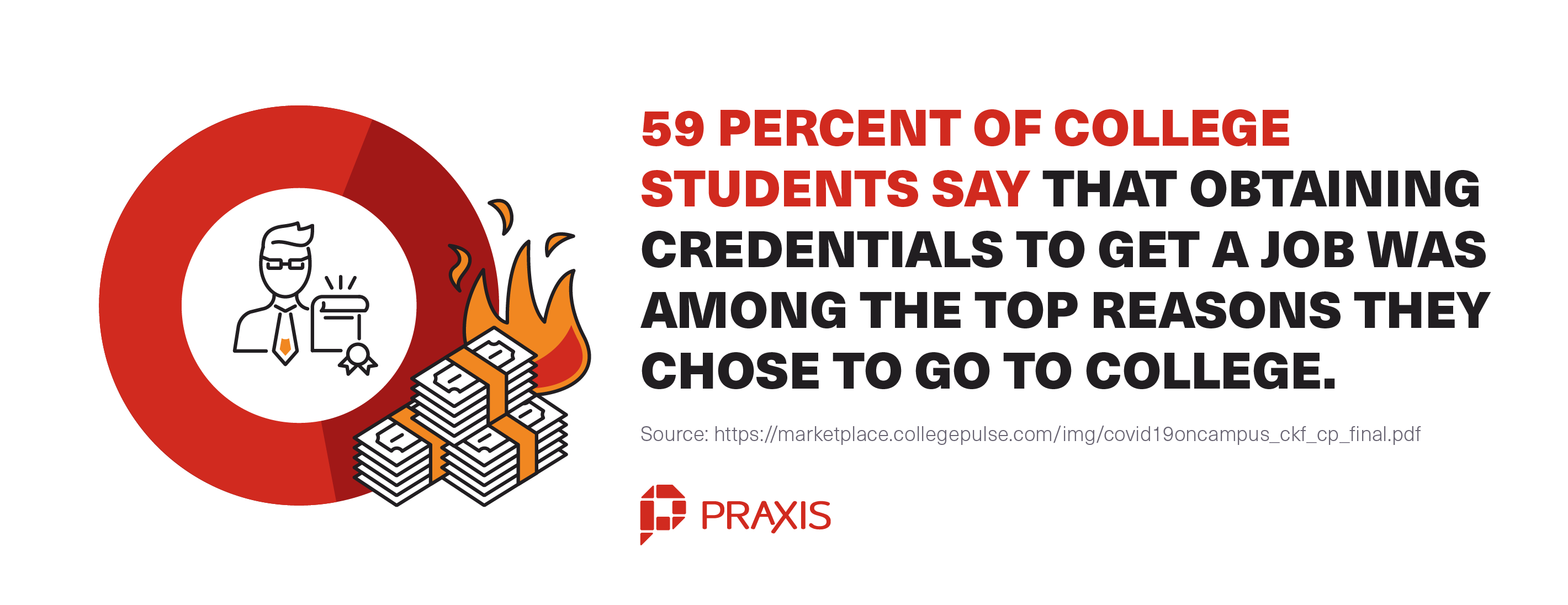
According to a recent College Pulse survey, 59 percent of college students say that obtaining credentials to get a job was among the top reasons they chose to go to college. But the truth is, you don’t need a credential to get a good job unless your career of choice legally requires a tertiary qualification.
Don’t believe me? According to a survey by Learning House, 90 percent of HR leaders are open to hiring applicants who don’t have a four-year degree. Additionally, a study by Harvard Business School found that 37 percent of employers feel that experience is the most important factor in a job applicant.
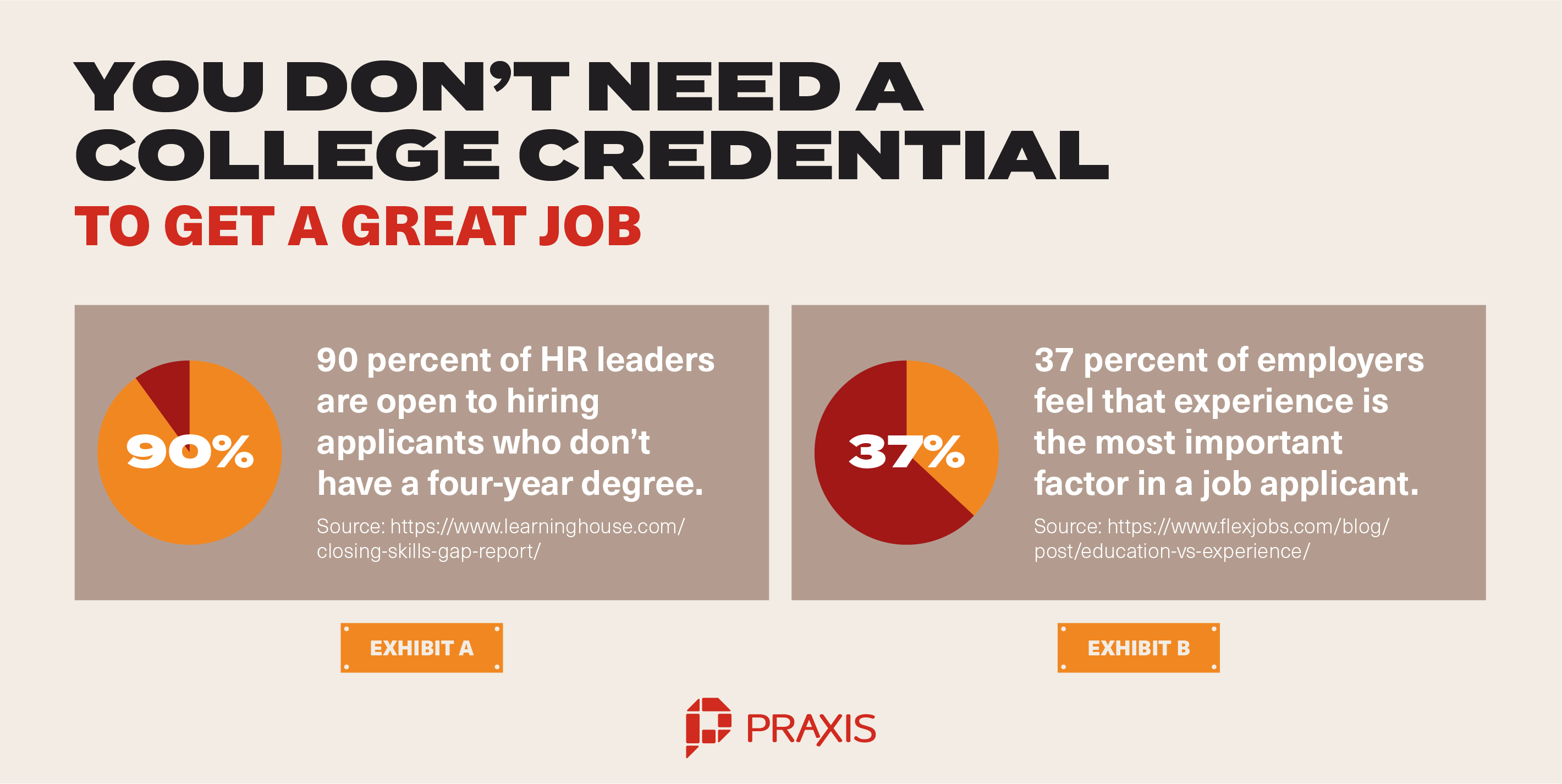
College is a commitment of at least four years of your life – so you need to be very sure that it’s the best use of your time given what you want to achieve in life. Four years is a long time, equivalent to some 8,000 working hours that you could alternatively use to earn money, gain real-world experience, travel, start a business, work on mastering a skill, or any number of other options.
These days, you can create your own credential by adopting a value creation mindset and building a digital footprint or “paper trail” that allows prospective employers – or clients – to get a view of your work and mindset through your online activity and documented projects.
College doesn’t necessarily equip you with the skills you need to succeed in your future job.
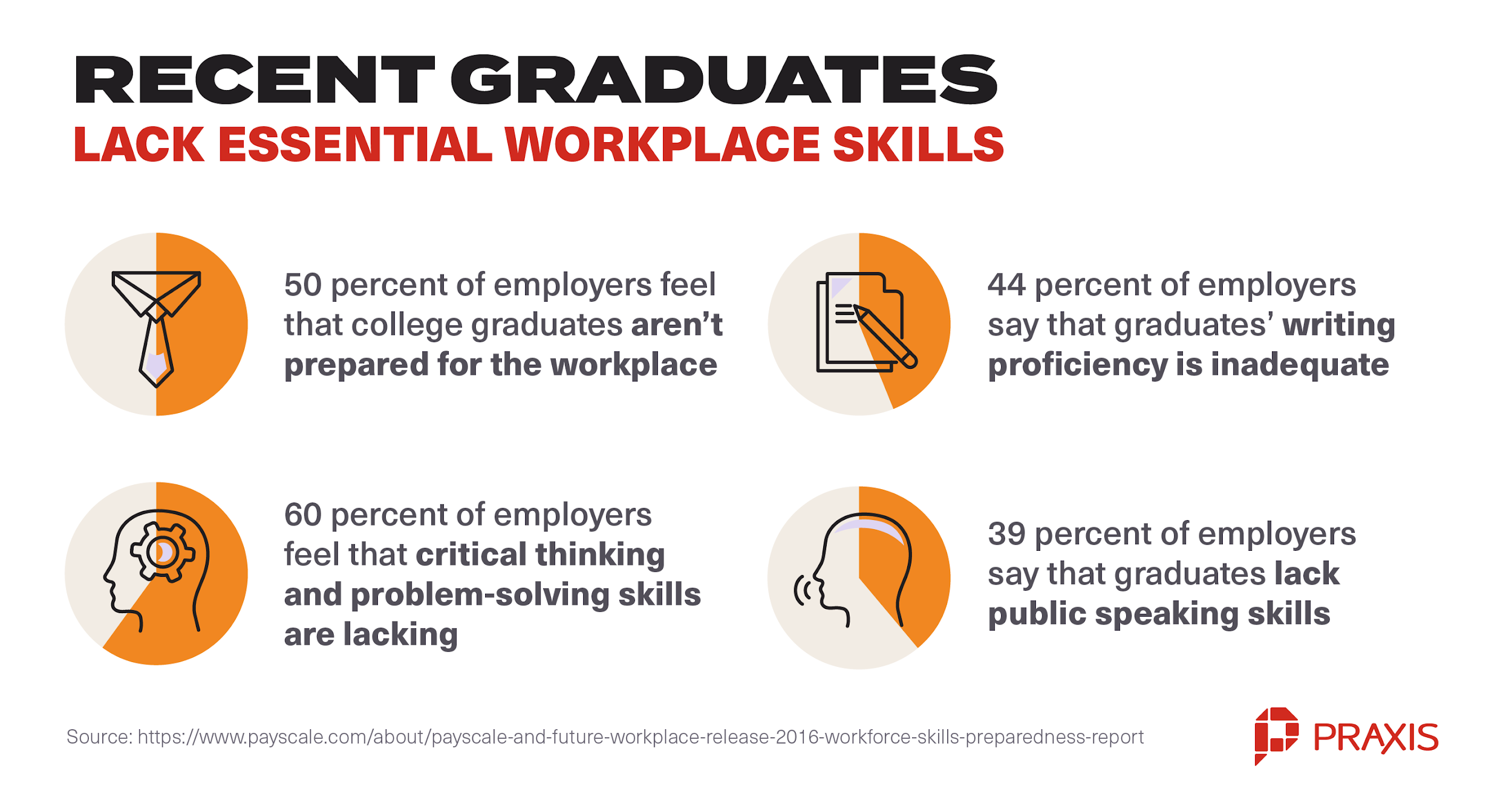
College also won’t teach you how to get a job. In fact, 6 out of 10 college students say that helping students to find internships and job opportunities should be colleges’ top priority.
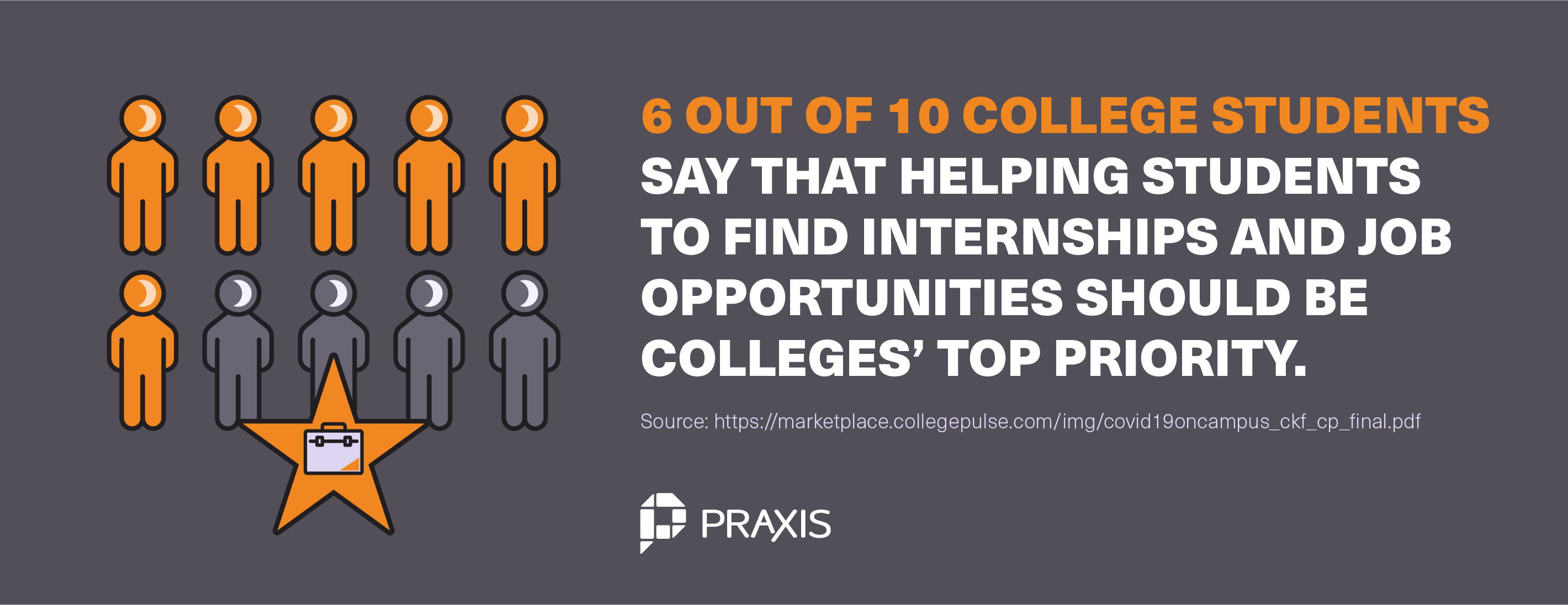
Aside from wanting the “signal” that a degree represents, it’s likely that one of the most common reasons for going to college for the social experience that campuses offer.
But what happens when this key component of the college experience is taken away? With many colleges moving classes online in response to the COVID-19 pandemic, a growing number of students are asking themselves “Is Zoom University worth it?”
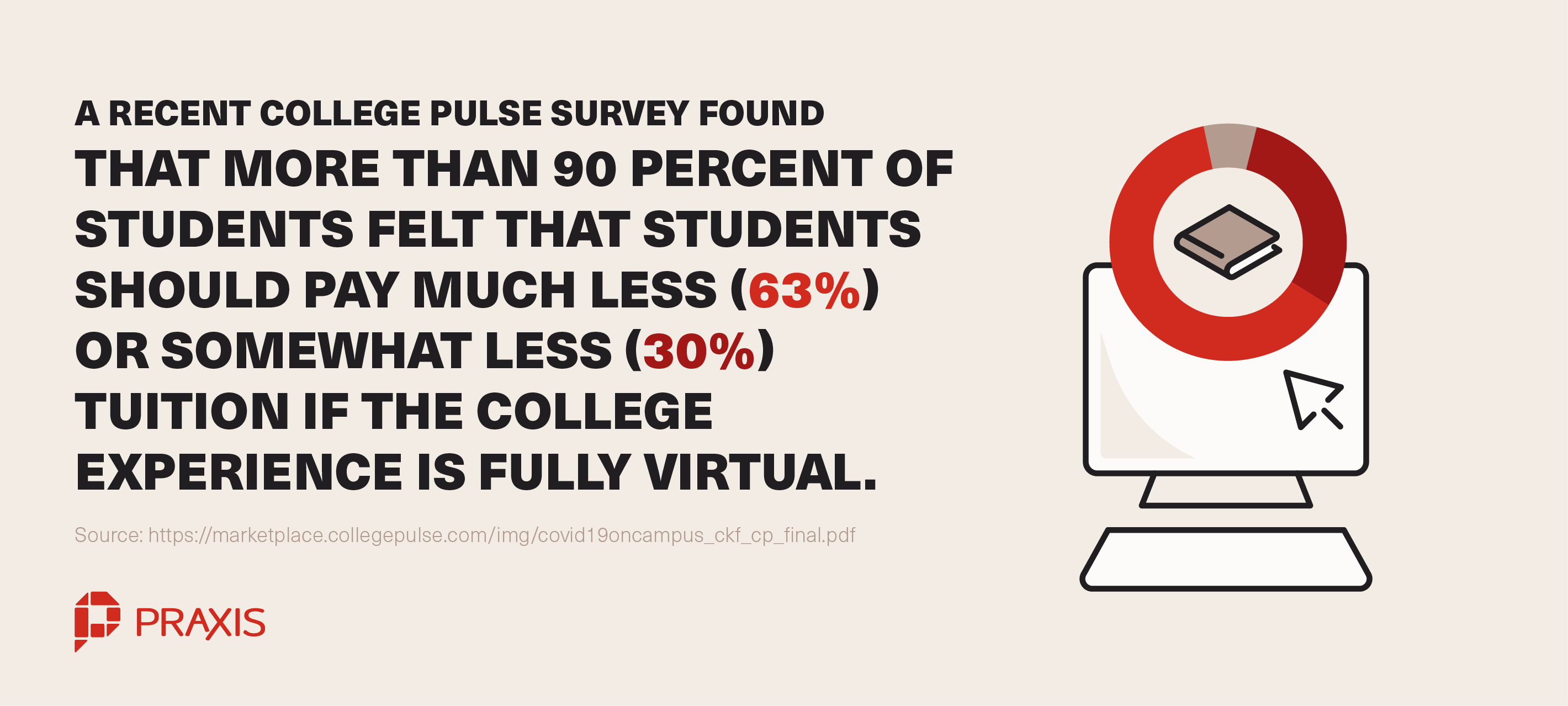
The rise of “Zoom University” means that in addition to the 6 questions below, you also need to ask yourself how comfortable you are with online classes, whether the program you have in mind is well-suited to online learning, and whether this is really the best education experience you can get.
Questions to Ask Yourself About College
Here are 6 questions you can ask yourself to help you better determine what you should when evaluating the next steps to take for your education:
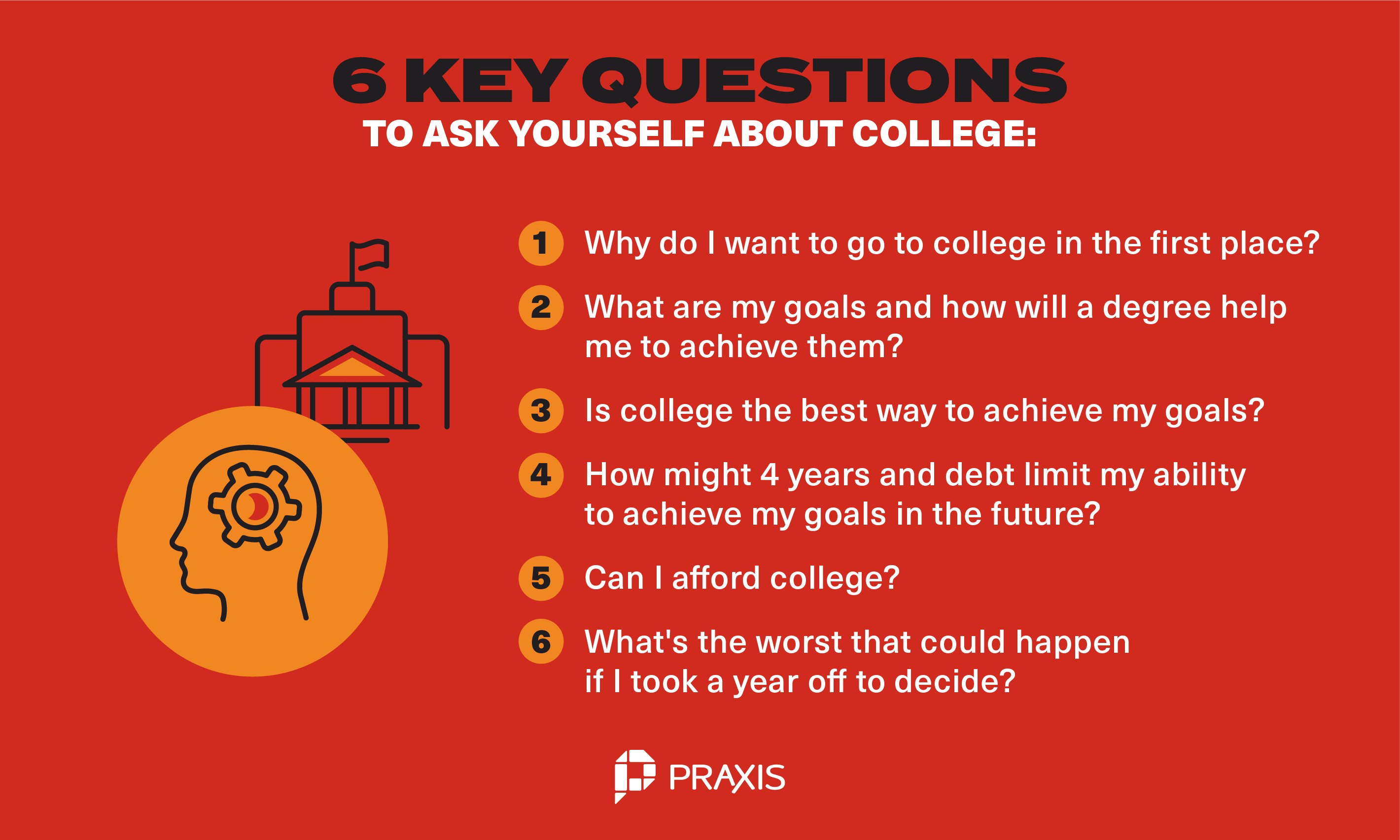
Below, we’ve unpicked these six questions in more detail and included some additional questions that arise when you start trying to answer them.
1. Why Do I Want to Go to College in the First Place?
It’s important to ask yourself what’s behind your desire to attend college and what are your reasons for wanting to go in the first place. What do you want from your college experience?
Be honest with yourself.
Is it simply because you feel obligated to go? If so, why is that? Are you feeling pressured to go? Do you believe that a college degree guarantees a well-paying job, or that you won’t be able to get a decent job without one? Have you done your due diligence and researched whether this is true?
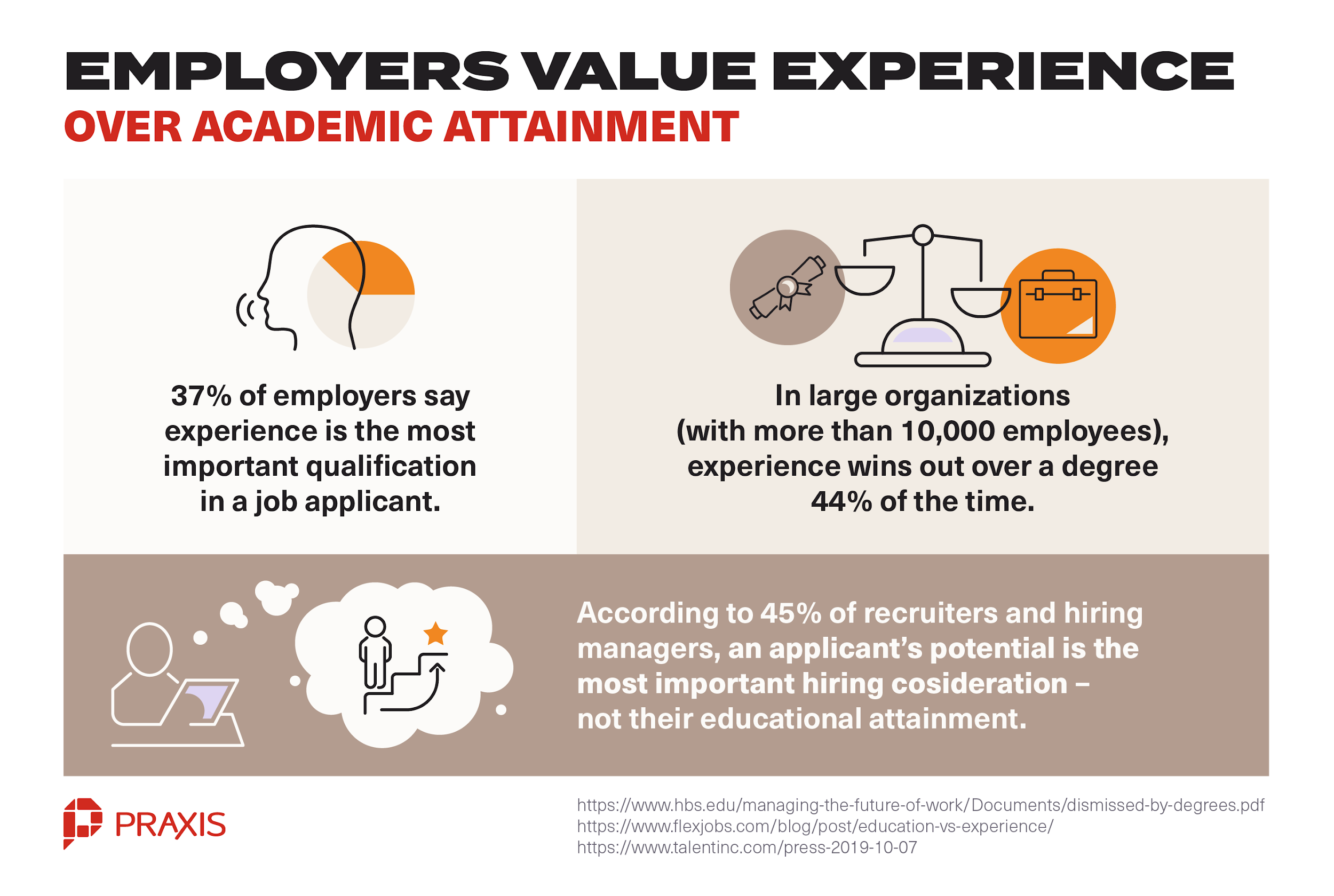
Is it to move away from home and become independent? Because – news flash – you don’t need to go to college to do that
Do you want the social college experience that movies about and TV shows depict? You don’t have to go to college to find your tribe. In fact, there’s nothing stopping you from moving to a college town and participating in all the festivities without paying the hefty tuition fees.
If you’re considering going to college to build your network, as yourself whether there are other ways you could achieve this, and keep in mind that a network of individuals close to you in age is unlikely to pay off for years to come.
Are you hoping that the college experience will help you find yourself and figure out what you want to do with your life? I’ve got bad news for you: it’s no easier to find yourself in college than it is outside of college, and the college experience is a kind of bubble that doesn’t resemble the working world, so it won’t give you an accurate idea of what various career paths are actually like or whether they’re the right choice for you.
Do you want to go to college because you want to learn as much as you can about your chosen career path? Do you believe that college is the best educational experience available for your chosen career? Have you duly investigated and weighed the alternatives?
No matter what your motivations for going to college, ask yourself whether there are other, easier, quicker, more effective, or faster ways of achieving these outcomes.
2. What Are My Goals and How Will a Degree Help Me to Achieve Them?
Do you know what your goals are? Is your aim to make as much money as possible, or to have a meaningful and personally fulfilling career? Have you considered what type of work you find meaningful?
Does the career you want to pursue legally require a college qualification?
Actually, let’s take a step back. Do you even know what you want to do? Are you sure? And more importantly, have what have you done to test this idea? A lot of people choose their careers based on what they’ve seen on TV and in films, without investigating what the day-to-day reality of that job looks like and without testing whether they are genuinely suited to this career.
Ask yourself how you could validate your idea(s) about what kind of career (and lifestyle) you want. Can you talk to people in this field about its ups and downs? Could you job shadow someone or get an internship? The more hands-on experience you can get, the more accurate idea you’ll have of what it takes to do this job and whether it’s what you want.
If you don’t know what you want to do yet, take the time to evaluate your interests, talents, and passions. What do you spend most of your time doing and talking about? What are you already good at, and what do people tell you you’re good at? Is this something other people value, that you could get paid to do? – Don’t assume you know the answer to this question, do actual research.
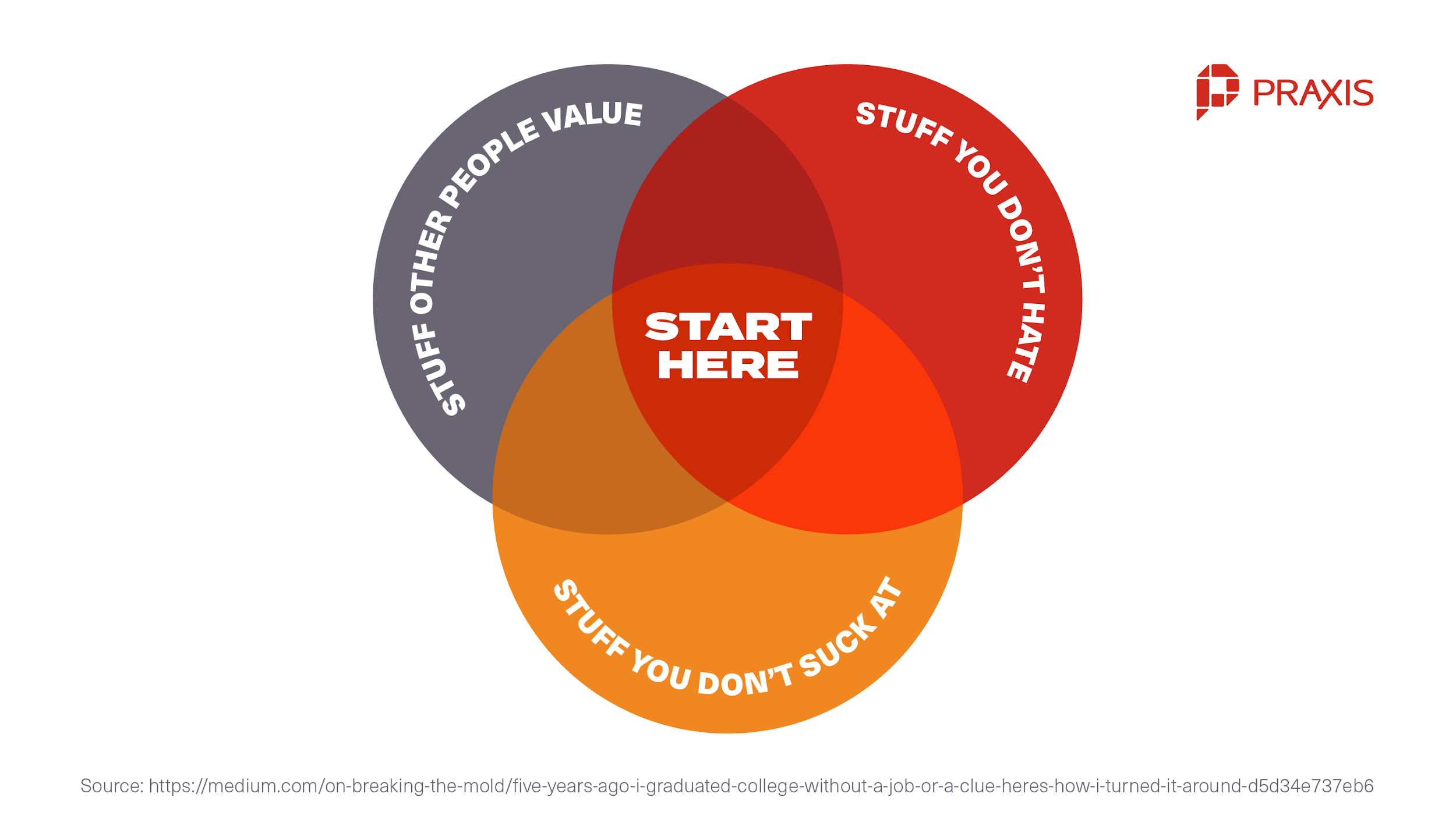
Have others already succeeded in monetizing this? Could you emulate them or do it even better? What skills would you need to learn in order to do so? Do you need a degree to succeed in this field, or could you learn as much (or more) without college?
Test and validate your assumptions before making a decision that commits a lot of your time. If you’re still not sure what kind of work appeals to you, ask yourself how you could experiment with lots of different careers to see which ones excite you the most.
Now that you know what your goals are, how does a degree affect your plans? Does a degree help you achieve these goals? Do you feel like you don’t have other options? Are there other, better/cheaper/more effective ways to learn what you need to learn? Is a degree legally required for the profession you’re considering? If not, how sure are you that a degree will help you get ahead in this field?
If you think you need a degree because signals to future employers that you know your stuff, is there no other way you could signal this?
Watch the video below to learn how to build a better signal.
<Insert College is dead video: https://www.youtube.com/watch?v=9qGBICsVeXQ&feature=youtu.be&ab_channel=FutureFrontiers>
3. Is College the Best Way to Achieve My Goals?
How would college help to prepare you for your career of choice? Is it really the only or best way to get where you want to go? How sure are you? Have you tried something else first?
Why do you believe that college is the best way to achieve your goals? What are these beliefs based on?
How much do you know about the curriculum of the course you’re considering? How much of it is hands-on active practice versus memorizing information and taking tests?
Is the curriculum relevant and up-to-date? How knowledgeable is the instructor, and how in touch are they with the latest developments and perspectives in your industry? Could you learn as well or better from someone else? What have other students said about the quality of the education they received?
Did other students with this qualification succeed in finding the kind of work they wanted?
Do you know exactly what it is you need to learn for your future career? Is there any way you could find out, and any other way you could acquire these skills?
4. How Might Losing 4 Years and Accruing Debt Limit My Ability to Achieve My Goals in the Future?
Are you willing to give up four years of your life to go to college? What opportunities might you miss out on in those four years? If it’s four years – some 40 percent of first-time students fail to graduate within 8 years!
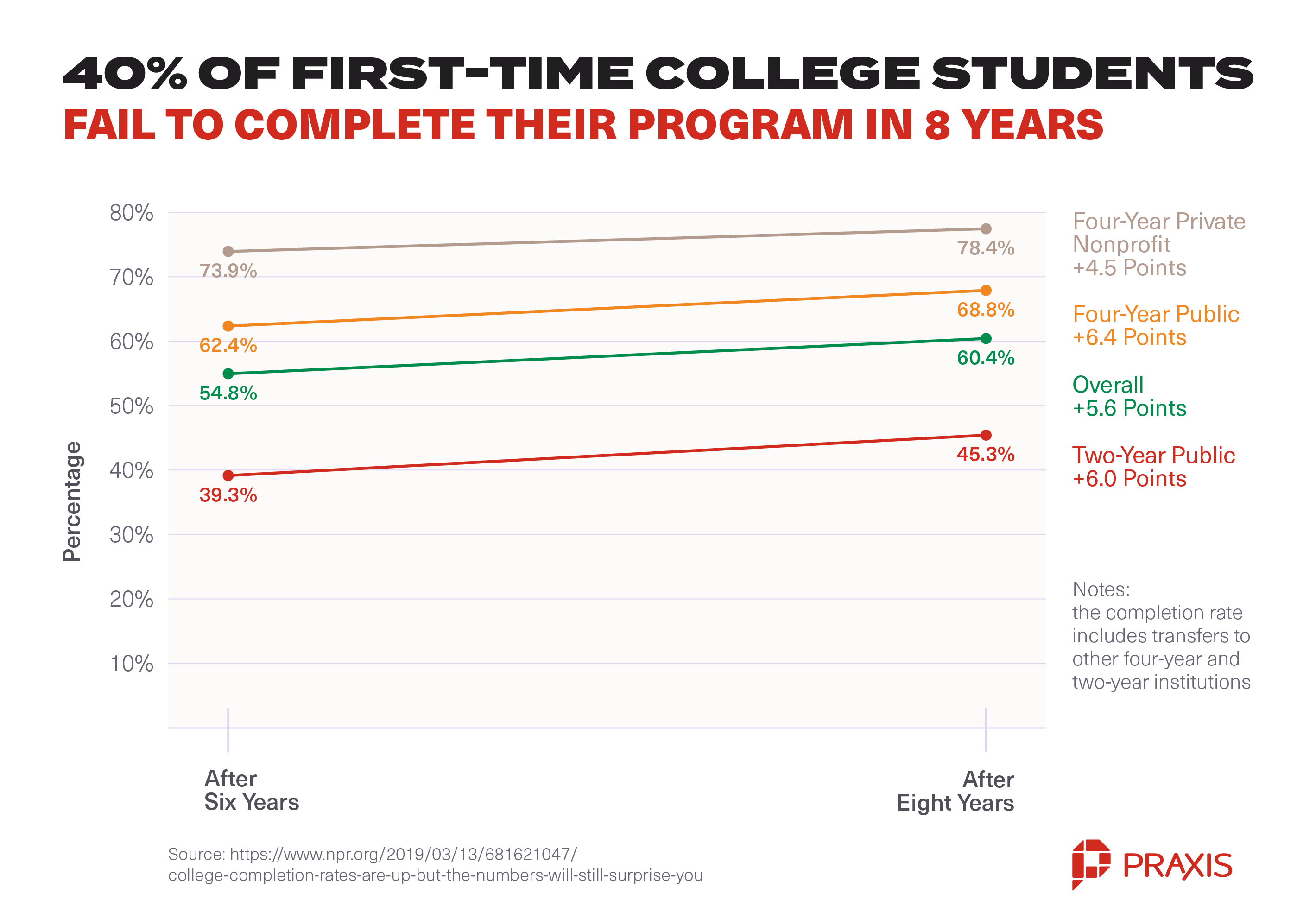
Could you invest your time better if you did something else? Do you have a business idea or opportunity that may be time-sensitive? Are you willing to accept the risk that by the time you graduate, your idea may not be relevant anymore, or that you might have lost interest in it?
Four years is a long time and can carry a significant opportunity cost, aside from the potential income you could earn in four years (especially when compared to any student loan debts you’ll rack up).
Ask yourself whether there’s a faster way to acquire or improve the skills and knowledge you think you’ll gain from college. What are they? What key experiences and learning opportunities would you be putting on hold or passing up on altogether if you committed four years to college now?
Before you make a decision one way or the other, investigate the education resources available to you and decide whether you could teach yourself the skills you need through self-directed education. Also consider how you might benefit from an apprenticeship or bootcamp program that can accelerate your learning and help you to build your network and access employment opportunities.
5. Can I Afford College?
Whether you can afford college is a crucial question to ask yourself before committing to what can be a wildly expensive decision. Are you considering a public or private school? In or out of state?
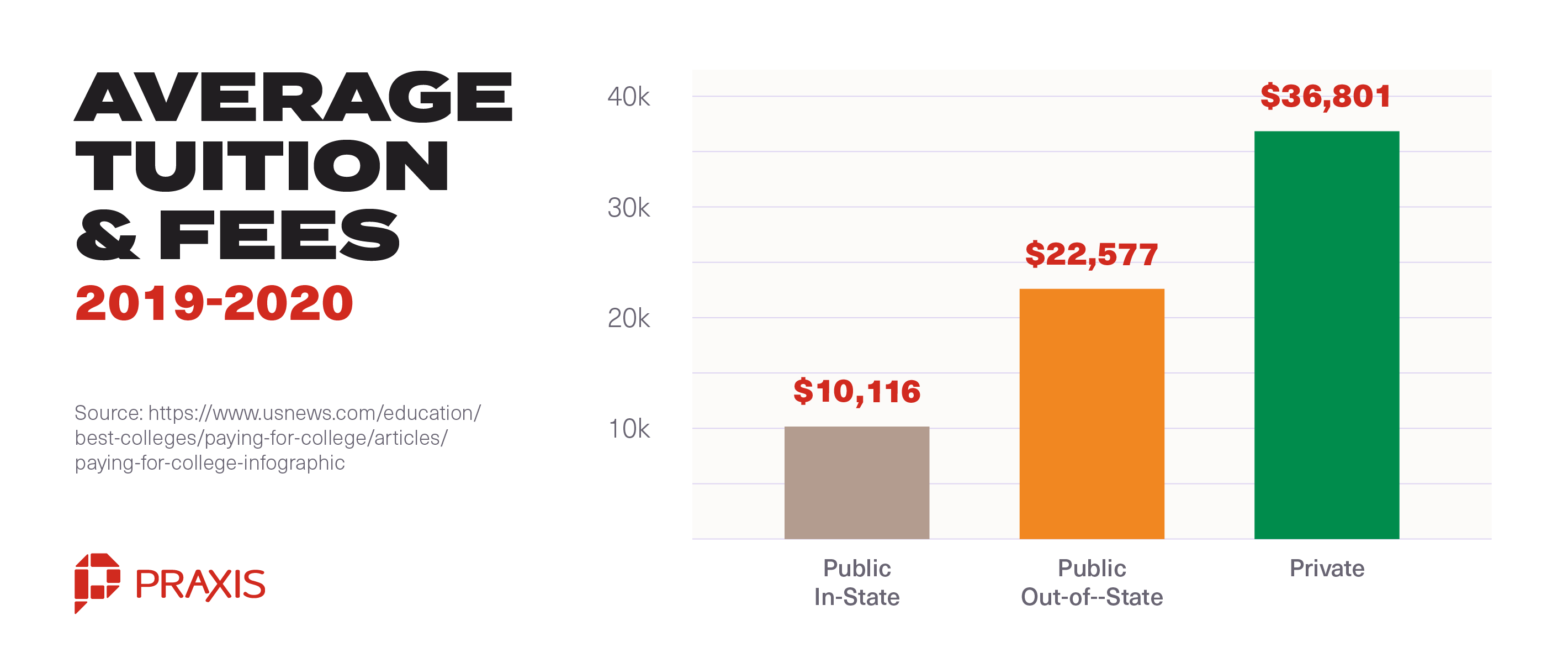
What would college cost you, all told – including accommodation, books, and other fees and expenses? Are you willing to pay that much? Is there something else that you could use that money for?
Would you need to take out a loan? What would the monthly repayments and interest on that loan look like? How many years would it take you to pay it off? (On average, seniors estimate that they will take six years to settle their student loan debt, but data shows that 20 years is a more realistic estimation).
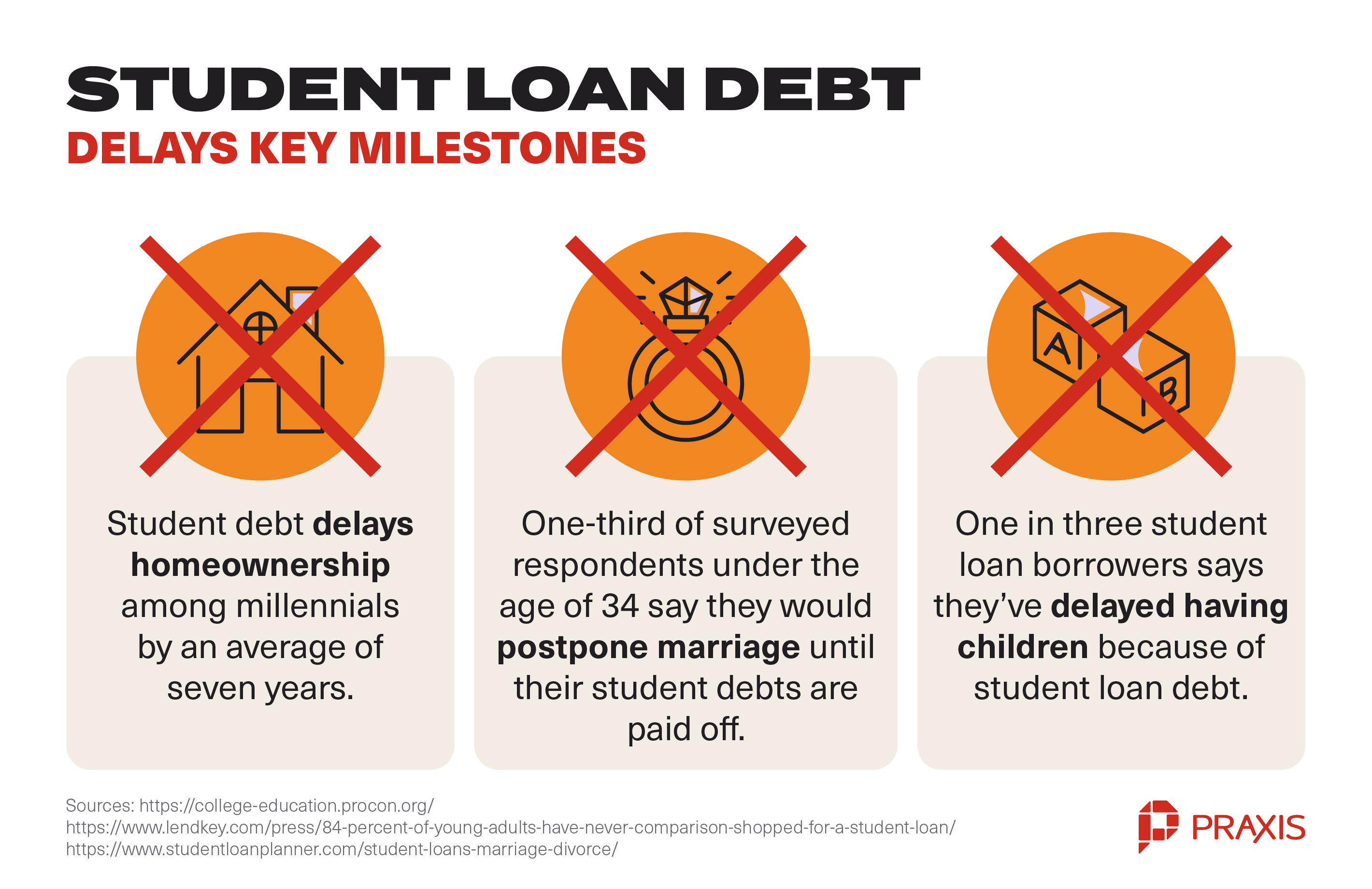
Do you have a plan for if something happens and you’re unable to make payments? Do you understand how capitalization and interest accrual work?
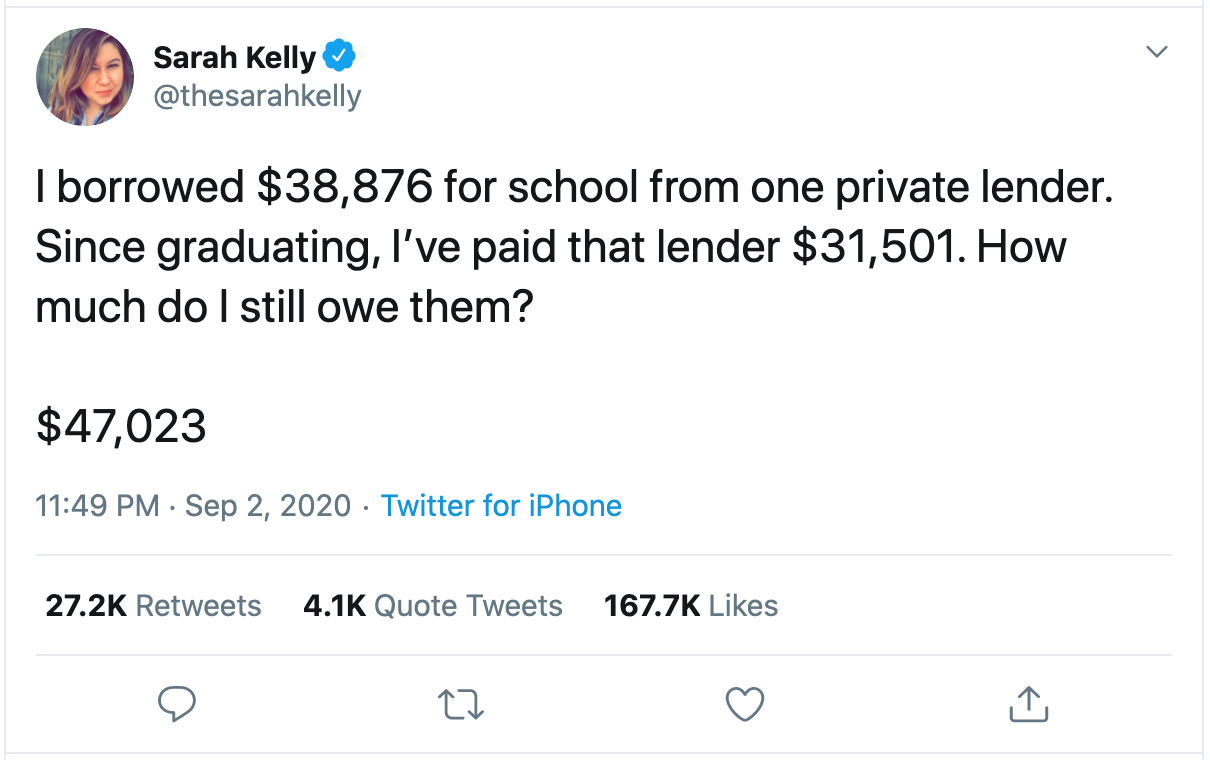
Then there are questions like whether you believe that college is truly worth the cost of tuition. Is the cost truly justified? Can you guarantee a return on your investment?
It’s important to weigh the potential payoffs against the downsides before you make such a potentially life-altering decision.
6. What’s the Worst that Could Happen If I Took a Year Off To Decide?
Say you took a year to give yourself time to answer these questions and get a clearer idea of what it is you want to focus your time and energy on. What’s the worst that could happen?
Now, I don’t mean take a year off to watch Netflix – I mean taking a year and actively experimenting with different potential career paths or business ideas.
A year to gain experience and explore your interests and passions outside of school, to decide on a skill – or several – that you’d like to develop, or a project you’d like to do.
You could join a bootcamp or take online courses, do internships or volunteer – anything to expose yourself to the real world of work and explore what kind of work aligns with your interests and talents.
What’s the worst that could happen? You’re young and the stakes are lower now than they ever will be again, so there’s no better time to take risks and come up with a plan of action.
It’s crucial that you have a plan of action, even if you only decide to take a year off to give yourself time to gain some experience before you make the decision. If this is you, check out our resources on the topic:
- Don’t Go to College: A Complete Guide to Opting Out & Moving On
- Getting Your Foot in the Door: 3 Essential Habits That Matter More than Your Resume
- Self-Directed Learning: A Primer for Ambitious Young Adults
- Why Go to College? Weigh the Payoffs Against the Downsides

If you’ve decided that college is not for you, consider applying to Praxis. Praxis is a college alternative that shortens the distance between learning and earning by accelerating your self-directed education and helping you land a job at a growing company.
The program is designed to put you in the driver’s seat of your education and career, helping you to explore your unique interests and talents and matching them to real-world business roles ranging from marketing to sales, operations, and customer support.
During the 6-month bootcamp portion of the program, you’ll not only learn valuable skills and build a network of inspired individuals and experienced mentors but also build up a portfolio of projects that demonstrate your ability to create value to future employers. For the next 6 months of this year-long program, you’ll be employed full-time with a company that we’ll help you select and apply to based on your interests and strengths. During this time, you’ll receive ongoing support and mentorship to help you succeed in your new role.
The best part? Because we believe that our success should be tied to yours, we decided to put some skin in the game: If you’re not hired full-time within 6 months of graduating from the bootcamp, you won’t pay a cent.
Sound good? Hit Apply below.
December 22, 2020
